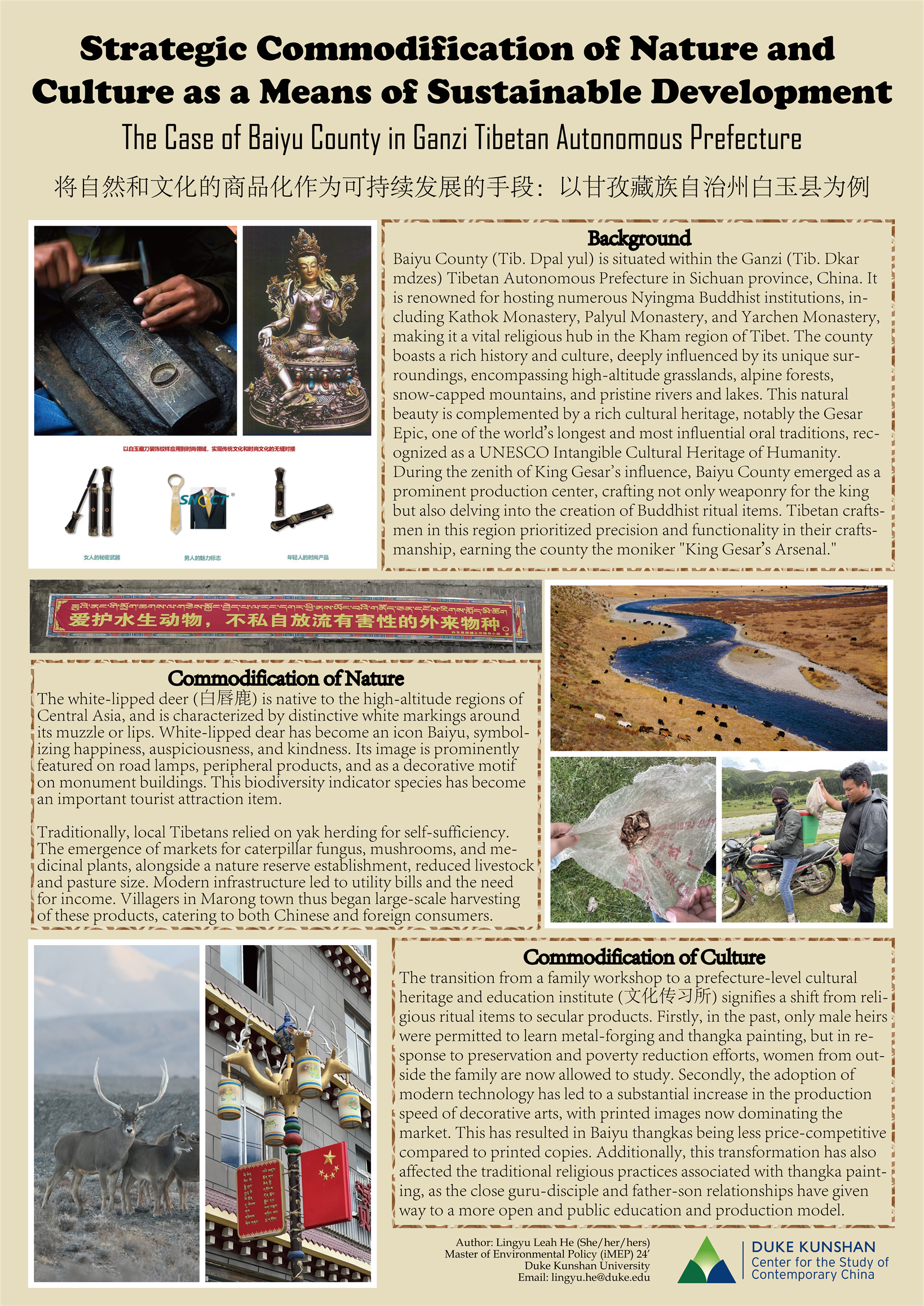Supervisors: Reed Noss, Robin Rodd & Jiahua Yue
Student Researcher
Lingyu is a second-year student enrolled in the Master of Environmental Policy program at DKU. Her academic journey is guided by an interest in biodiversity conservation and the preservation of cultural heritage in Tibet. This passion was ignited during her gap year, when she had the opportunity to reside in a Tibetan monastery in Ganzi, Sichuan. Lingyu is committed to pursuing a Ph.D. in Environmental Humanities after graduation. To facilitate her research in Tibet, she is currently studying Himalayan languages at Rangjung Yeshe Institute of Kathmandu University as a visiting student.
About the Project
In the context of socialism of Chinese characteristics, Tibetan communities in Baiyu have undergone profound transformations in their approaches to production and the preservation of their cultural heritage. These changes have posed significant challenges to their traditional methods of utilizing natural resources, conducting religious activities, and producing artwork. The notion of commodifying both natural resources and cultural heritage, though a matter of ongoing debate, has emerged as a strategic solution aimed at safeguarding and promoting sustainable development in Baiyu County. This study employs a combination of methods, including participant observation, in-depth interviews, and content analysis, to elucidate the intricate interplay between Tibetan traditions and recent economic, cultural, and religious trends within the evolving socio-cultural landscape of Baiyu County. I argue that while the commodification of nature and culture in Baiyu has resulted in the desacralization of previously dominant Buddhist principles and a decline in religious ethics, it also provides, within the current neoliberal framework, a means for indigenous communities to establish sustainable livelihoods and a pathway for the survival and promotion of traditional arts to a broader audience.



